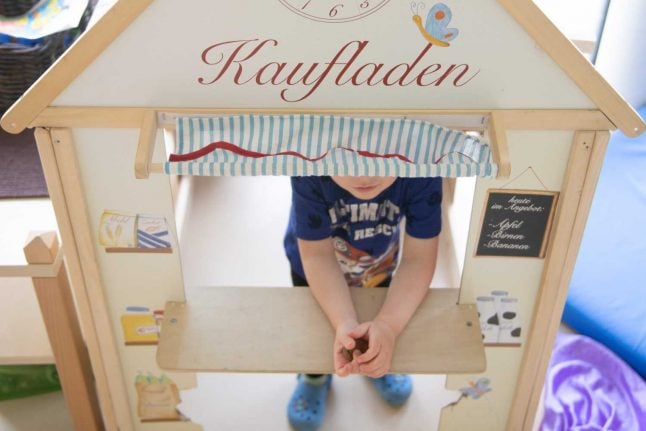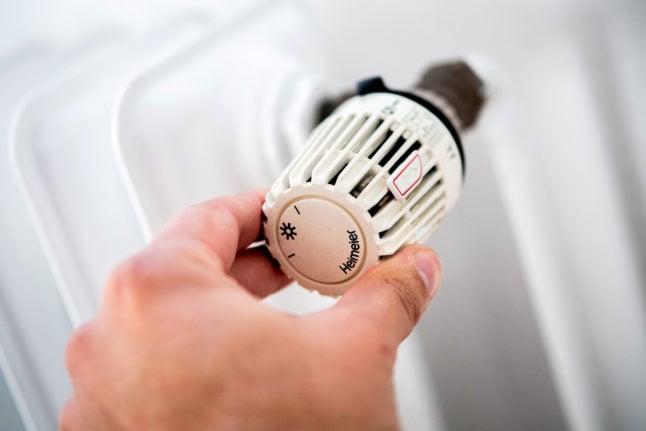Germany will start making child allowance bonus payments from Monday, September 7th.
This will be paid in addition to the usual child allowance payments.
When you receive the payment – and how much you receive – depends on a range of factors. Here’s what you need to know.
How much is the ‘bonus’?
In June, Germany’s governing coalition decided to add a ‘bonus’ amount to the child allowance payments.
This amount is set at €300 per child. Originally, €150 was to be paid in September and €150 in October.
Instead, €200 will now be paid in September with the final €100 to be paid in October.
The bonus is paid out automatically, meaning you will not need to ‘apply’.
In order to receive the bonus, the child must have received the benefit for at least one month in 2020.

The money is provided tax free. Image: DPA/VLH
When will I receive the bonus?
The money is being paid out from September 7th onwards – which means you may have received the amount already.
Given that there are 18 million children in Germany, it is to be expected that the payments might take a while.
When you actually receive the money will depend on your child benefit number.
The first payments made on September 7th will be for people whose child benefit number ends in a zero.
From there, digits one through to nine will be paid out gradually as September continues.
The bonus is paid separately to the child benefit payment.
READ: How Germany plans to increase child benefits and provide tax relief
What do Germany’s parents plan to do with the bonus?
A survey published by the Institute for the German Economy (IW) found that almost two thirds (61 percent) plan to spend the money completely or partially, while the remainder plan to save it.
One quarter (24 percent) said they will spend the bonus in full.
An estimated 2.4 billion of the total 4.3 billion paid out as part of the bonus will find its way back into the economy immediately.
What parents plan to do with the money does however depend on their economic situation.
Of those in the top income group, 45 percent plan to save the money in full, compared with 34 percent in the middle income group and 39 percent in the lowest income group.
Who is entitled to the payments?
All parents in Germany are entitled to the payments, other than those in the highest-earning brackets.
As reported in Berlin’s Tagesspiegel newspaper, this will depend on the number of children and the status of the parents.
While eight out of ten families in Germany will be eligible for the allowance, married parents with an annual income of €86,000 and above will not be eligible to receive the bonus.
For lower income families, the bonus will not be offset against Hartz IV or other maintenance payments – i.e. it will be paid on top.

'Hey dad, what are we going to do with the money?' Image: DPA
How much is the standard child allowance payment?
The child benefit is to rise to €219 per month on January 1st 2021 for the first and second child, to €225 per month for the third child, and to €250 from the fourth child onwards.
According to the bill, families will also receive tax relief. for example, the tax-free child allowance (Kinderfreibetrag) is to be raised by more than €500 to €8,388.
READ: What you need to know about Germany's child support payments
In total, families would be relieved of around €12 billion per year, said Finance Minister Olaf Scholz of the centre-left Social Democrats (SPD).
“This is good news for all families and children in Germany,” he said when the announcement was made in July.
What are people saying about the bonus?
Opinions of the bonus are varied, with some lauding it as an important support measure for families with positive consequences for the German economy, while others say it is insufficient in light of the pandemic.
The President of the German Institute for Economic Research (DIW), Marcel Fratzscher, told the Reinischer Post the payment was sensible.
“The child bonus is one of the smartest measures in the economic stimulus package. It helps quickly and relatively precisely the families who now need support in the crisis.”
Conversely, Sabine Zimmermann – chairwoman of the family committee in the Bundestag and member of left-wing party Die Linke – told the Neue Osnabrücker Zeitung “a one-time child bonus of €300 cannot nearly offset the burden of the pandemic for families”.



 Please whitelist us to continue reading.
Please whitelist us to continue reading.
Member comments